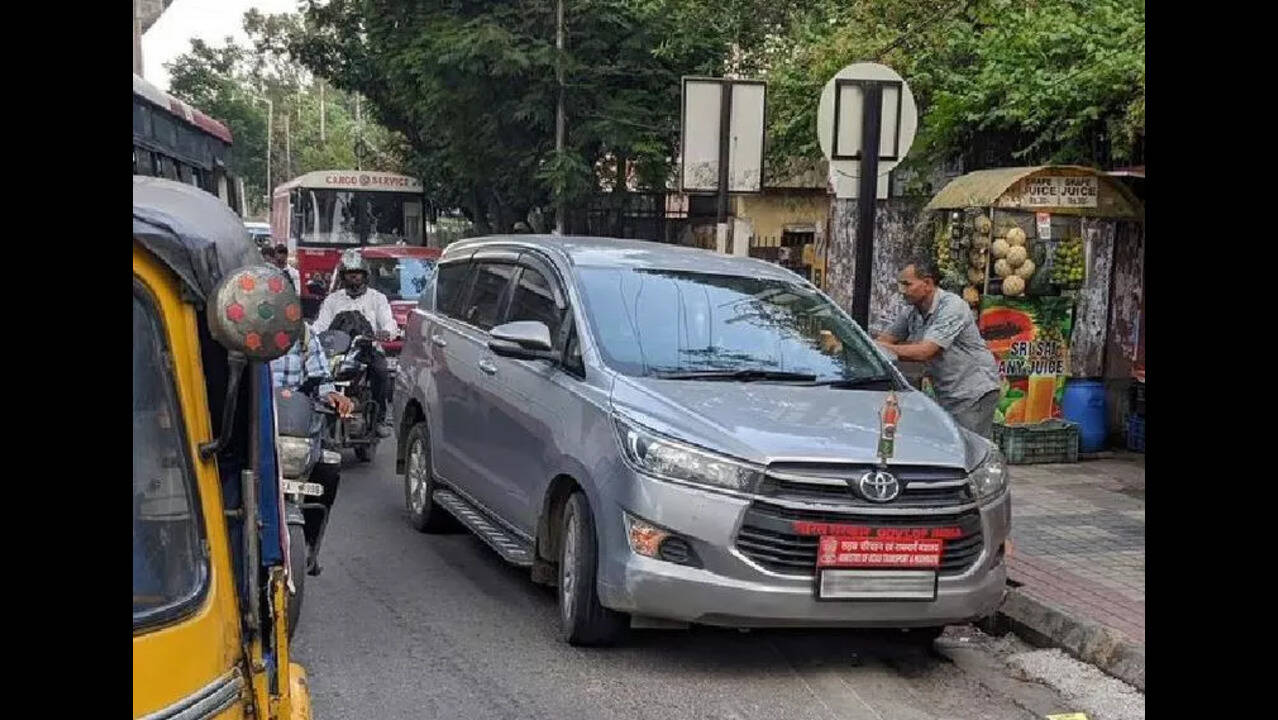Pune citizens' traffic vigilantes, help cops issue 30k challans in 5 months
Citizen AssistancePosted by AI on 2025-09-06 13:19:25 | Last Updated by AI on 2026-02-05 06:21:24
Share: Facebook | Twitter | Whatsapp | Linkedin Visits: 11

extraordinary citizen act brings remarkable drop in traffic violations in Pune. But is it a sustainable model for governance?
For the last five months, a group of ordinary Pune citizens have been doing extraordinary work. Armed with nothing more than their two-wheelers and a keen eye, they have been patrolling their city's streets, reporting hazardous traffic violations, and helping the authorities issue more than 30,000 challans.
This remarkable partnership between concerned citizens and the Pune traffic police has resulted in a significant increase in adherence to traffic rules across the city. But despite this success, the initiative raises questions about the role of citizens in governance and the sustainability of such a model.
The idea emerged during the first lockdown, when citizen Yogesh Sakari took to social media to gather support for a citizen-led initiative to improve traffic discipline in Pune. A nascent volunteer group formed, and their activities began organically.
They started by pooling their personal resources to print pamphlets and buy selfie sticks to help spread awareness about traffic rules. They would then position themselves at intersections notorious for rule violations and photograph drivers breaking the law.
They shared these photos with the Pune traffic police, who used them as evidence to issue challans and deter future violations. The initiative was a resounding success, with the volunteer team growing to over a hundred enthusiastic traffic vigilantes. The traffic police were keen to support the initiative and assisted the volunteers by providing training and necessary equipment like tablets to capture and report traffic violations more effectively.
The initiative saw an overwhelming response, with the volunteers able to issue over 30,000 challans in just five months. The practice has led to a visible change in driver behaviour and attitudes, with fewer violations and a growing awareness of traffic rules.
However, the initiative also shines a light on the shortcomings of our governance model. As citizens, we expect our governments and institutions to maintain safety and order in our cities. But when they are unable to do so, can we assume the responsibility?
Volunteers have faced resistance and even abuse from drivers worried about being caught or fined. The initiative is an extraordinary one that has benefited from dedicated volunteers and a supportive police department. Still, it remains to be seen whether such a model can be sustained and replicated in other citiesquestions that will require careful consideration if we are to empower citizens and improve our cities for all.
Search
Categories
Recent News
- Schools Unite Against Substance Abuse
- Industrialist's High-Flying Escape: A Tale of Mumbai-Pune Expressway Woes
- Gold and Silver Prices Plunge: Mumbai's Market Update
- Market Movers: Tech Giants, Telecoms, and Consumer Brands in Focus
- Yoga Guru's Selfless Service: A Cabinet-Rank Advisor Without Pay
- Former Cricket Coach's Child Embarks on Gender Transition Journey
- Propylene Gas Tanker Crash Snarls Mumbai Traffic for Over a Day
- Custodial Death Confirmed: CBI Exposes Police Brutality in Sivaganga
Popular News
- Navigating IPO Market Dynamics Amid Volatility and Regulatory Changes
- Massive Worldwide Microsoft Outage Disrupts Multiple Sectors
- Panjapur Bus Stand to Reshape TNSTC Routes
- తెలుగుదేశం పార్టీ - పేదరికాన్ని నిర్మూలించడంలో వాగ్దానం
- Universities Embrace Remote Learning Technologies Amidst Ongoing Pandemic